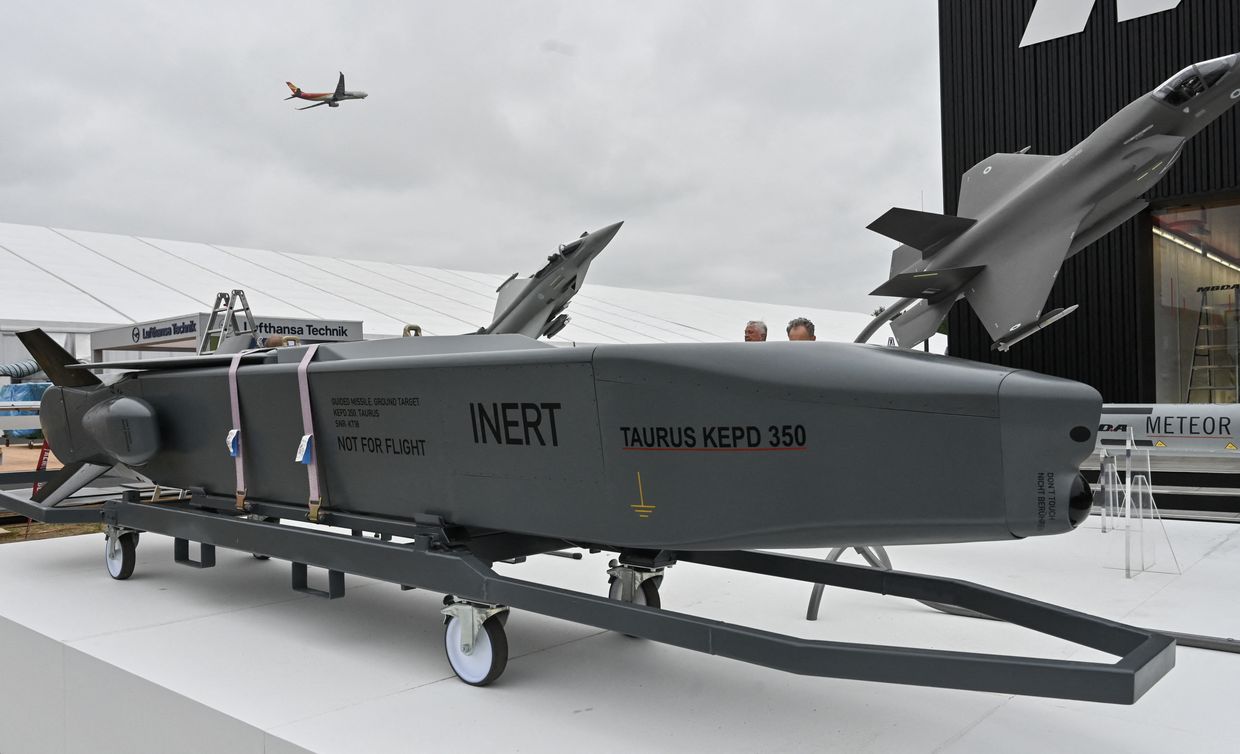Germany to help finance Ukrainian-made long-range systems

Germany and Ukraine will sign a memorandum on the joint purchase of "long-range fires" made by Ukrainian producers, German Chancellor Friedrich Merz announced on May 28.
Berlin will also help finance the operations of Starlink in Ukraine, a U.S. satellite communications system crucial for the Ukrainian military, Merz added.
"There will be no restrictions on long-range weapons, Ukraine will be able to fully defend itself and also strike military targets outside the territory of Ukraine," Merz said alongside President Volodymyr Zelensky during a joint press conference in Berlin.
"This is the beginning of a new form of military-industrial cooperation between our countries, which has significant potential." He added that the production itself can take place either in Ukraine or Germany.
The meeting between Merz and Zelensky was preceded by speculation that Germany would finally reverse its long-held policy of not sending Taurus missiles to Kyiv over fears of escalating the war against Russia.
Speaking at the conference, Merz evaded answering a direct question about potential Taurus deliveries and refused to discuss military support for Ukraine in detail.
"We will continue our military support and expand it," Merz said.
Kremlin spokesperson Dmitry Peskov called the chancellor's statements a "provocation" and suggested it may hinder peace efforts.
Moscow has repeatedly rejected calls by Kyiv and its Western partners for a ceasefire and only intensified attacks on Ukrainian cities.
Before becoming chancellor, Merz, elected for the CDU/CSU conservative alliance, signaled he would overturn a ban on Taurus deliveries imposed by his predecessor, Social Democrat Olaf Scholz.
Ukraine has been using U.S.-made ATACMS for over a year, and U.K.-French Storm Shadows for more than two.
Only in late 2024, the Biden administration and other allies eased the restrictions, allowing Ukraine to use long-range missiles against Russian military targets on Russian territory.
With Western arms running thin, Ukraine has sought to develop its own long-range weapons, including ballistic missiles and drone-missile hybrids.
















